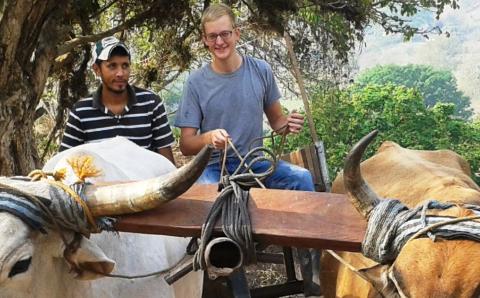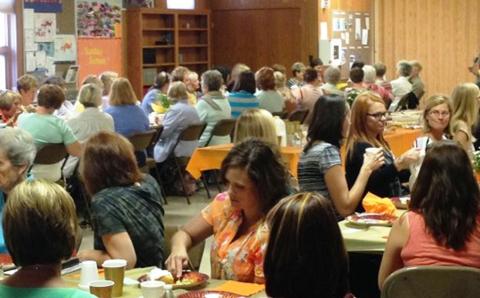Rhonda Roorda, a 1992 graduate of Calvin College, felt a calling that she did not want to pursue.
After graduating from Calvin and the University of Michigan, she was ready to follow her interest in urban studies.
“The minute I defended my thesis, I heard God pushing me to research and write about transracial adoption,” she said. “I didn’t want to go there. I knew I was struggling with my own identity and, if I did this, I would have to deal with it myself.”
Roorda was born in New York City and did not know her African American birth mother or father. A white couple near Rochester, N.Y., adopted her at the age of 2.
“My adoption was part of a spike in transracial adoptions in the early 70s,” she said. “Soon after, the National Association of Black Social Workers went on the record strongly against this, calling it ‘cultural genocide.’”
For a time, these placements saw a steep drop as emotions ran high. During the next 10 years, Rita Simon of American University in Washington, D.C., did the first study of black children adopted into white homes.
The results did not show the level of devastating effects feared. This study and others led the federal government to pass two laws paving the way for these types of adoption again.
However, both Simon and Roorda knew that while all children need and should have homes, more than a home is required in transracial adoption settings.
Roorda partnered with Simon to produce a series of books that share the stories of persons in transracial adoptive homes: In Their Own Voices (transracial adoptees); In Their Parents’ Voices (adoptive parents); and In Their Siblings’ Voices (non-adoptee siblings).
The fourth book in the series—which Roorda wrote alone after Simon died in 2013—has just been published. In Their Voices: Black Americans on Transracial Adoption features a wide range of perspectives on the subject, from the Jim Crow era to the post-Civil Rights era.
Roorda admires adoptive parents for their love and willingness to welcome children into their homes. She feels the same about open-minded adoption agencies. But she emphasizes that more is necessary.
“It’s painful, it’s gritty, but it is all blessing,” she said. “I’m OK. I know where I came from. God never allowed me to give up, and now he wants to use me to help others.”
About the Author
0
0
1
4
27
CRC Product Services
1
1
30
14.0Normal
0false
false
falseEN-US
JA
X-NONE/* Style Definitions */
table.MsoNormalTable
{mso-style-name:"Table Normal";
mso-tstyle-rowband-size:0;
mso-tstyle-colband-size:0;
mso-style-noshow:yes;
mso-style-priority:99;
mso-style-parent:"";
mso-padding-alt:0in 5.4pt 0in 5.4pt;
mso-para-margin:0in;
mso-para-margin-bottom:.0001pt;
line-height:115%;
mso-pagination:widow-orphan;
font-size:11.0pt;
font-family:Arial;
color:black;}Mike Vandenend, Calvin College









